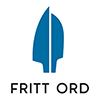
BERLIN/BELGRADE - According to the new German Supply Chain Act, all German companies are obligated to ensure that human rights are respected throughout their supply chains worldwide. This means no child labor, no forced labor, and no exploitation. But is that truly the case?
This investigation looks behind the scenes at factories in Serbia, a Balkan country caught in the "race to the bottom" for foreign investments, where German companies play a significant role. The team of investigative journalists interviewed workers, experts, company representatives, and insiders, while sifting through a mountain of documents and reports to uncover how manufacturing workers are treated as they produce cables and tires for BMW, Mercedes, and Volkswagen.
Many of these workers endure long hours for minimal pay and face harsh treatment from their supervisors. Most are too afraid to unionize. Some have even filed complaints with German companies, as outlined by the Supply Chain Act.
But can these complaints make a difference? Or is the Act merely a fig leaf, masking a system where workers' rights are systematically violated on the periphery, allowing the center to profit from cheap labor?
Photo: ©Jelena Đukić-Pejić
ONLINE
- Jura: Mercedes proverava optužbe radnika za torturu, Vreme, 23/10/2024.
- Da Nemci vide naš pogon, pobegli bi kroz ventilaciju, DW Serbia, 26/10/2024.
- Da Nijemci vide naš pogon, pobjegli bi kroz ventilaciju, DW Croatia, 26/10/2024.
-
Da Nijemci vide naš pogon, pobjegli bi kroz ventilaciju, DW Bosnia, 26/10/2024.
-
Nemanja Rujevic Novinar DW, TV Interview, RTK2, 25/10/2024.
IMPACT
- Vreme: Mercedes proverava optužbe radnika Jure za torturu, N1 Info, 23/10/2024.
- Šta nemački auto giganti rade povodom uslova rada u leskovačkoj Juri?, Danas, 23/10/2024.
- Vreme: Mercedes proverava optužbe radnika Jure za torturu, Novi Magazin, 23/10/2024.
- "Mercedes" i "Audi" ispituju stanje radničkih prava u leskovačkoj "Juri", Južne vesti, 23/10/2024.
- Mercedes vrši reviziju u Juri nakon optužbi za torturu radnika, Jugmedia, 23/10/2024.
- Mercedes i Audi proveravaju optužbe radnika Jure za torturu, O21, 23/10/2024.
-
Audi i Mercedes ispituju optužbe radnika leskovačke Jure, BIZLife, 23/10/2024.
COUNTRIES
- Germany
- Serbia
need resources for your own investigative story?
Journalismfund Europe's flexible grants programmes enable journalists to produce relevant public interest stories with a European mind-set from international, national, and regional perspectives.
support independent cross-border investigative journalism
We rely on your support to continue the work that we do. Make a gift of any amount today.














